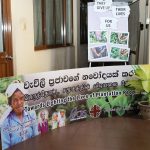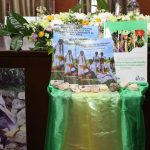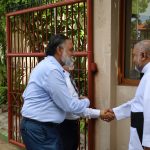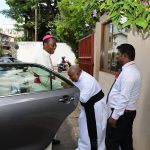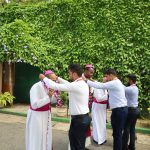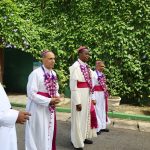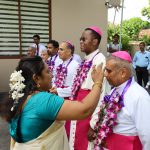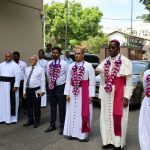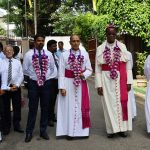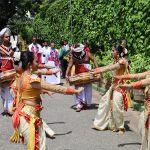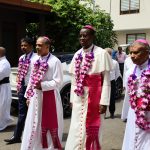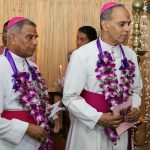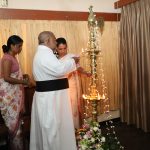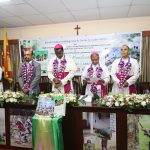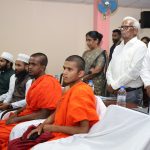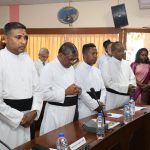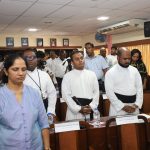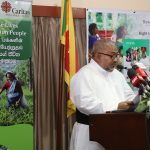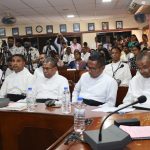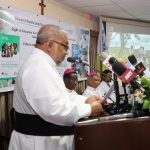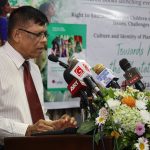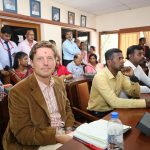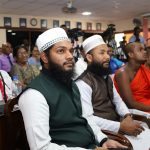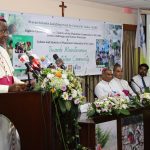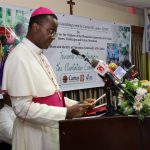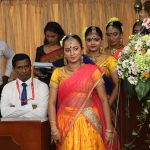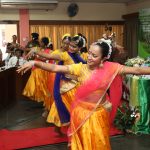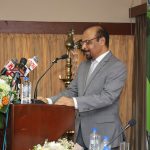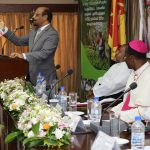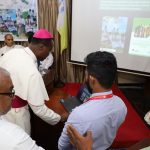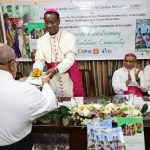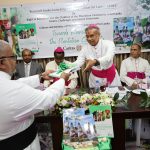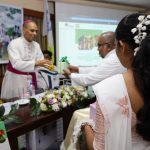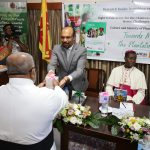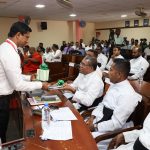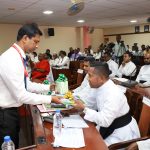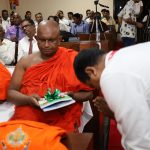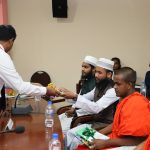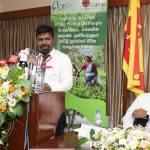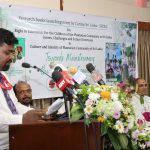Caritas Sri Lanka proudly launched 02 essential research books in the context of the plantation community in Sri Lanka on 3rd October 2024 at CSL-SEDEC under the ‘Lighting the Lives of the Plantation People (LLPP) project.
Ecological Conservation and Plantation People (ECPP) Unit has been implementing projects that underscore Caritas Sri Lanka’s commitments towards environmental stewardship and the needs of the plantation community emphasizing their rights. “Lighting the Lives of the Plantation People (LLPP).” The project is the major project implemented by Caritas Sri Lanka from 2021 across 06 Dioceses of Sri Lanka with the generous funding support of Catholic Relief Services (CRS).
Over the past two centuries, the plantation community, IOTs or Malaiyaha Tamils, has faced historical discrimination and marginalization. Nevertheless, they are one of the main pillars of Sri Lanka’s export economy. Yet, they have often been overlooked and left behind in terms of access to education, healthcare, and social services. Among all the hurdles, many children in this community still struggle to access quality education, which is a fundamental right. This lack of access perpetuates cycles of poverty and limits opportunities for future generations. Simultaneously, the unique cultural identity of the plantation community has often been disregarded, leading to a loss of heritage and community pride. In response to address these challenges, Caritas Sri Lanka conducted two essential researches focused on ‘Right to education for the children of the plantation community in Sri Lanka: issues, challenges, and future directions’ and ‘Study on the Culture and identity of the plantation community in Sri Lanka’.
This research books launching event was held under the leadership of the National Director of Caritas Sri Lanka Rev. Fr. Luke Nelson Perera. He mentioned in his speech that ‘Caritas being a charity organization will continue to work with the plantation community and advocate for their needs and rights’. The event was graced by the presence and speech of the chief guest of the event His Excellency Most. Rev. Dr Brian Udaigwe, the apostolic Nuncio of Sri Lanka, mentioned in his speech that it requires greater political will, inclusive policies, and efforts to foster an environment where the unique cultural identity of the community can thrive alongside the National unity and to ensure that education is not a privilege but a fundamental rights for all. In addition, he conveyed his wishes to Caritas Sri Lanka for taking such initiatives to address the current tough reality of the plantation community in Sri Lanka. Moreover, Most.Rev.Dr. Harold Anthony Perera, the chairman of the Catholic Bishops’ Conference of Sri Lanka honoured the event as the guest of honour and Most.Rev.Dr. Valence Mendis, the Bishop of Kandy Diocese honoured the event as one of the special guests. Hon. Justice S. Thurairajah, PC, the Supreme Court of Sri Lanka was the keynote speaker at the event. Hon.Justice is the first to become Justice of the Supreme Court of Sri Lanka from Indian origin Tamil over 200 years of their ancestor’s arrival. In his speech, Justice Thurairajah emphasized the importance of recognizing the plantation community as the Indian origin Tamil community to preserve their identity, and how Education being a fundamental right can assist the community in combating poverty and vulnerabilities. He also highlighted the estate worker’s crucial role as one of the main pillars of the export economy in Sri Lanka, urging for their treatment as dignified human beings deserving of proper compensation. Mr W.A.L. Wickramarachchi, the Director of the Ministry of Plantation, environment, wildlife, Forest Resource, Water Supply and Community Infrastructure, Mr. Trevor Ludowyke, the senior development officer from the Canadian High Commission of Sri Lanka, Mr. Thomas Vanke, and the Country Coordinator from AGIAMONDO participated in the event as special guests. In addition, the Diocesan Directors, religious leaders, academics, media, staff from the Diocesan Partners, members of Civil Society Organizations, community members, and Government Officials along with the staff from Caritas Sri Lanka participated in the event.
Education is the key to empowerment. It transforms lives, opens doors, and creates opportunities. Simultaneously, understanding the culture of the plantation community is crucial to highlight their unique heritage, and for comprehending current socio-economic conditions and community dynamics. Therefore, these research documents are critical materials for understanding and addressing the needs of the plantation community. Together, we can help to create a brighter future for the plantation community in Sri Lanka, where every child has the opportunity to thrive and every culture is celebrated.


